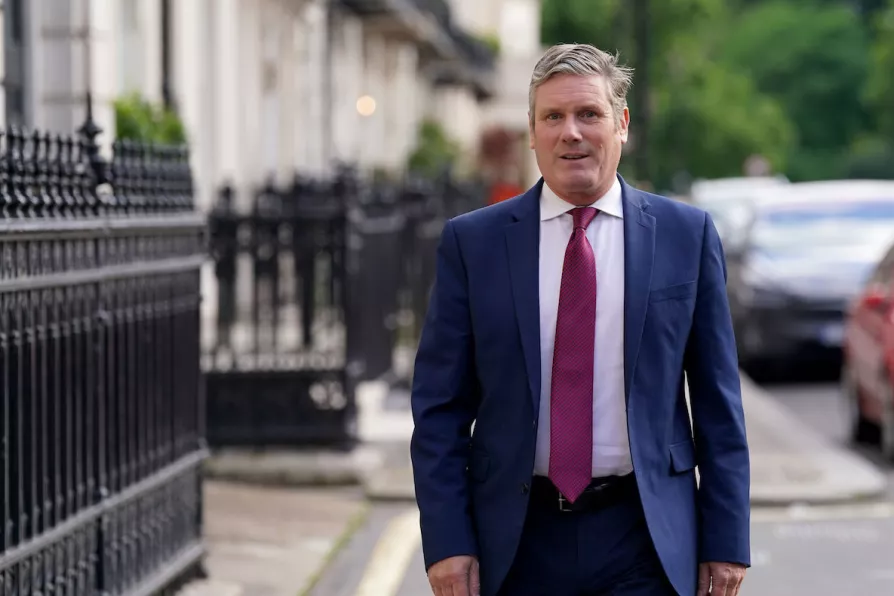
 Labour leader Sir Keir Starmer
Labour leader Sir Keir Starmer
LABOUR’S road to election victory would be more certain if it presented a raft of policies which tackle the real-life problems faced by the many millions whose living depends on their wages, their pensions or the benefits they have earned and deserve.
Unite’s Sharon Graham has done us a service by pointing out as sharply as she did on BBC Radio 4’s Broadcasting House programme that the issue is “abhorrent profits” and “what is happening with the cost of living.”
In the face of a self-induced paralysis of government — occasioned by the inability or unwillingness of the two contenders for the leadership of the Tory Party to say what are their proposals for dealing with the energy price crisis — Labour has an open goal.
With its latest proposal, Labour has sent the ball in the right direction but missed the goal mouth.
The fact is that Labour’s £29 billion energy bills scheme is not ambitious enough to cover the anticipated increase in the energy price cap, because it fails to take account of the average consumer’s increased energy in the winter.
The Institute of Fiscal Studies estimates argues that Labour’s scheme to freeze the price cap would cost at least £8 billion more than Labour estimates.
Sir Keir Starmer’s £29bn scheme calls for the government to freeze household energy bills at the springtime 2022 price cap until April next year, rather than letting it shoot up in October 2022 and January 2023.
Labour is silent on whether households should be directly funded to pay bills or the energy companies directly subsidised. Either way this will be our money going to shareholders. Nationalisation is a better option.
Those on the left who have always opposed the privatisation of energy production and distribution can take some satisfaction from the fact that substantial majorities of opinion — encompassing even a majority of Conservative voters — are in favour of public ownership of utilities, rail and mail.
Ownership is key and with the entire sector publicly owned a government, if it so willed, could take such steps as are necessary to ensure continued supplies at reasonable cost.
The French government has increased its majority stake in the national energy enterprise EDF and thus is able to shield the French people from the speculators’ global energy cartel.
We can speculate on the factors that induced the impeccably neoliberal big business-friendly ex-banker who sits in the Elysee to devise this scheme but it seems improbable that President Emmanuel Macron was simply moved by concern for the French people, a majority of whom did not vote for him.
Perhaps he is frightened that to the “gilets jaune” who mobilised against the government when he put the petrol price up might be joined once gain by the “gilets rouge” of the Confederation Generale du Travail.
We have to ask ourselves why, in the face of such broad support for public ownership and the proven value of this in dealing with the energy price crisis, Labour does not attack the Tories where they are weakest.
If Labour is not careful, whoever wins the Tory leadership will come out with a policy that is more radical than Labour’s.
It would be ridiculous if, during a massive wave of pay strikes, Labour remains committed to a minimum wage policy less generous than the Tories’ and at risk from being outflanked on the main issue which shapes the political and economic views of the British people.

DENNIS BROE gives an update on the last week of anti-austerity protests against the Macron regime, which has seen the supposedly more right-leaning Gilets Jaunes join with the unions and the left

Starmer sabotaged Labour with his second referendum campaign, mobilising a liberal backlash that sincerely felt progressive ideals were at stake — but the EU was then and is now an entity Britain should have nothing to do with, explains NICK WRIGHT












